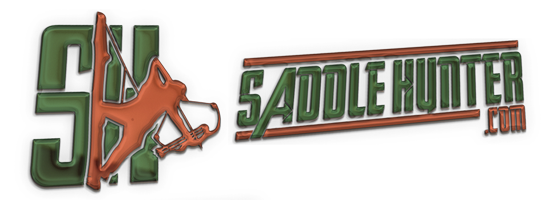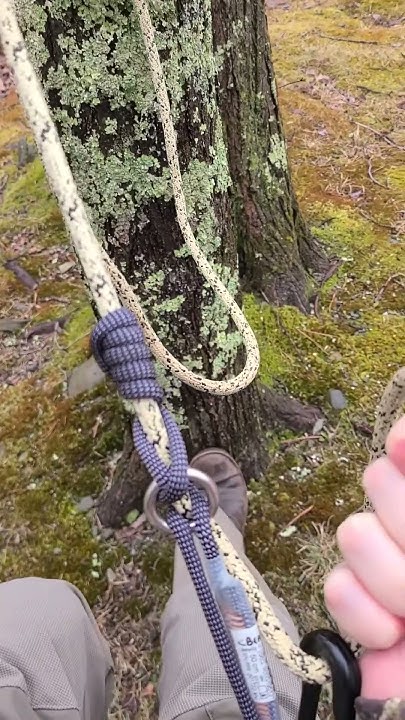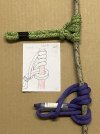Modified a final time. Everything stayed the same, but instead of the Klemheist on the bridge I'm now running a Sticht hitch. The Sticht made it so much easier to tend/shorten!
-
The SH Membership has gone live. Only SH Members have access to post in the classifieds. All members can view the classifieds. Starting in 2020 only SH Members will be admitted to the annual hunting contest. Current members will need to follow these steps to upgrade: 1. Click on your username 2. Click on Account upgrades 3. Choose SH Member and purchase.
-
We've been working hard the past few weeks to come up with some big changes to our vendor policies to meet the changing needs of our community. Please see the new vendor rules here: Vendor Access Area Rules
You are using an out of date browser. It may not display this or other websites correctly.
You should upgrade or use an alternative browser.
You should upgrade or use an alternative browser.
Knotless Adjustable Bridge Design
- Thread starter bowhunthard88
- Start date
MNFarmHunter
Well-Known Member
This thread is why knowing multiple skills and being creative is key.
Imagine being at height, tethered in and nicking your bridge with a broadhead. Using just your linemans belt and a hollowblock or similar, you can create a new bridge and not ruin the hunt.
This is why I always carry my tether/linemans on my saddle along with hollowblocks. I can drop, damage or forget everything but as long as I’m wearing my saddle, I can climb, hunt and get down.
Sent from my iPhone using Tapatalk
Imagine being at height, tethered in and nicking your bridge with a broadhead. Using just your linemans belt and a hollowblock or similar, you can create a new bridge and not ruin the hunt.
This is why I always carry my tether/linemans on my saddle along with hollowblocks. I can drop, damage or forget everything but as long as I’m wearing my saddle, I can climb, hunt and get down.
Sent from my iPhone using Tapatalk
Why the two loop girth/prussik hitch instead of just a standard one loop girth hitch?
MNFarmHunter
Well-Known Member
Why the two loop girth/prussik hitch instead of just a standard one loop girth hitch?
I would assume adjustability on the bridge loop. Many saddles do the same to adjust pressure points.
Sent from my iPhone using Tapatalk
drpike22
Active Member
I am not trying to be critical and the hitches are well done but what is the advantage over using a mechanical device. Just curious.
I get that, I was just wondering why the two loop, I have my linesman single girth hitch looped and it holds tight but I can still adjust if need be, and my bridge has prussiks on each end that also do their job well so I was wondering why he settled on halfway in between is all.I would assume adjustability on the bridge loop. Many saddles do the same to adjust pressure points.
Sent from my iPhone using Tapatalk
No metal.I am not trying to be critical and the hitches are well done but what is the advantage over using a mechanical device. Just curious.
drpike22
Active Member
Got itI get that, I was just wondering why the two loop, I have my linesman single girth hitch looped and it holds tight but I can still adjust if need be, and my bridge has prussiks on each end that also do their job well so I was wondering why he settled on halfway in between is all.
No metal.
Yea, just looking at that picture I can see what you 'see'...
The ring I have on there is probably just barely the right size?
It works perfect! There isn't a mechanical built that could work as good as that hitch does in both directions.
I've been in that saddle most of last huntin' season and off and on all winter and haven’t even dressed up that hitch...
The ring I have on there is probably just barely the right size?
It works perfect! There isn't a mechanical built that could work as good as that hitch does in both directions.
I've been in that saddle most of last huntin' season and off and on all winter and haven’t even dressed up that hitch...
Why the two loop girth/prussik hitch instead of just a standard one loop girth hitch?
I settled on a two-wrap as a compromise... The standard three-wrap was difficult to move with one hand after it had been weighted for a while. The single-wrap had a slight tendency to drift when weighted and unweighted several cycles.
I am not trying to be critical and the hitches are well done but what is the advantage over using a mechanical device. Just curious.
Originally I wanted a metal-free bridge with full adjustability (including the ability to increase length under full load) and that would lock onto, and hold, location on my bridge loops for pressure distribution. However, I am now willing to accept the introduction of a metal ring into the Sticht hitch on my bridge for the convenience it adds.
To be honest, I haven't seen too many adjustable bridges in the saddle hunting world utilizing mechanical devices. And most of the "commercially used" versions seem to be bulky/loud...

I tried it with smaller ring and Probe and it does work very nice, it works a little more perfectly by adding something to keep the rope from wedging, calling the skidder a Bodkin.Yea, just looking at that picture I can see what you 'see'...
The ring I have on there is probably just barely the right size?
It works perfect! There isn't a mechanical built that could work as good as that hitch does in both directions.
I've been in that saddle most of last huntin' season and off and on all winter and haven’t even dressed up that hitch...

Finally uploaded the video that the screenshot is from.
Using just a piece of cord, a ringless Sticn’t can be made. The bottom wrap is brought under itself to create the circle, keep it smaller, before taking to the back to make the twist. Tying a stopper knot in back on top of the twist to form the eye keeps it compact for bridge adjustment. The Sticht tends on its own without the need of a separate tender, if it doesn’t move easily push down on the ring. It will work easier if one, or both ends of the cord are put under the twist, also.


- Joined
- Sep 14, 2020
- Messages
- 6,970
Finally uploaded the video that the screenshot is from.
Do you hunt off this bridge? The hitch clearly accomplishes easily adjustable, but it seems like the hitch would run into the carabiner rather quickly on a left turn.
Do you hunt off this bridge? The hitch clearly accomplishes easily adjustable, but it seems like the hitch would run into the carabiner rather quickly on a left turn.
Yes, I do hunt off this bridge! I typically hunt with a longer vs. shorter bridge, so this has not been an issue to date. However, I have also practiced the rotation into a short bridge, and the carabiner acts as a reverse tender allowing the bridge to lengthen during the physical body rotation. Allowing the carabiner to act as the tender, at least with the materials used here, is very controllable and repeatable. All that aside, given time, I usually get set up; make my full rotation for both directions, and then set my bridge 4-6" longer. My final set bridge length still keeps my tether hitch/device and carabiner well with my reach, which to me is necessary for safety and adjustability.
Now I'm looking at the Basalt SS 3/16 Technora hitch cord setup vs. the Beal Jammy. I may be able to shorten the overall hitch length with this and it would be easier to tie...
Using one end of the Jammy as a loop is fairly simple to tie almost anything lol. Integrating a sling with both a directional hitch on one end and a standard prussic on the other is slightly more complicated, although evidently not impossible!Here’s a hitch that works nicely with the Jammy, and a little easier to tie.




